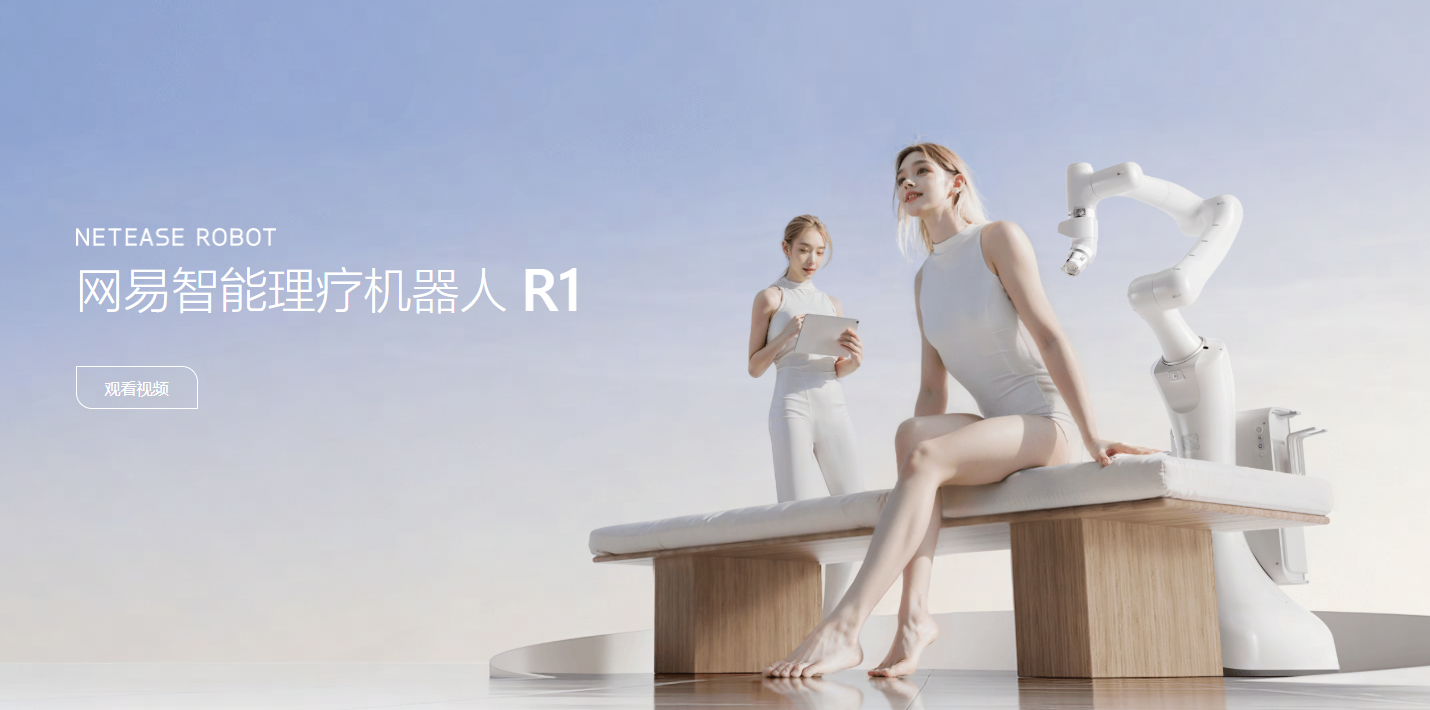- Home
- >
- News
- >
- Company News
- >
- View Details
AI physiotherapy: opening a new era of precision rehabilitation
24-04-2025
I. Definition and technical features of AI physiotherapy
AI physiotherapy is an innovative medical method that integrates cutting-edge technologies such as artificial intelligence, biomechanics, flexible sensing and big data analysis. It makes the rehabilitation treatment process more accurate, efficient and personalized through the application of intelligent devices and systems. For example, the NetEase Fuxi intelligent physiotherapy robot reconstructs the human body model through visual algorithms, accurately identifies 74 acupuncture points on the back, and uses AI imitation learning to restore the techniques of famous masters to provide patients with high-quality physiotherapy services.
(I) Precision
AI physiotherapy equipment can accurately control the amplitude, speed and strength of movement to ensure the accuracy and consistency of training. For example, in rehabilitation training, the robot can accurately control the patient's limb movement to avoid excessive force or inadequate positioning.
(II) Personalization
According to the individual differences of patients, AI physiotherapy can customize personalized rehabilitation training plans. The equipment can automatically adjust the training intensity and mode according to factors such as the patient's age, condition, and rehabilitation goals.
(III) Intelligence
AI physiotherapy equipment has the characteristics of intelligence, which can automatically monitor the patient's rehabilitation progress and adjust the training plan based on feedback data. For example, by using sensors to monitor the patient's strength, endurance and other indicators in real time, the equipment can automatically optimize the training plan.
(IV) Remote
With the help of Internet technology, AI physiotherapy has realized the functions of remote monitoring and guidance. Patients can receive remote guidance from professional physiotherapists at home to improve the convenience and accessibility of rehabilitation.
2. Application scenarios of AI physiotherapy
(I) Health care institutions
AI physiotherapy robots are widely used in health care institutions to provide daily testing and personalized physiotherapy services for the elderly, significantly improving rehabilitation efficiency.
(II) Medical care
In the field of medical care, AI physiotherapy robots help patients relax muscles and tendons, improve blood circulation, and promote self-healing through precise acupoint identification and massage techniques. For example, the AI physiotherapy robot of Ruiman Intelligent quickly realizes the precise identification of human meridian acupoints through the integration of 3D vision and AI large model technology.
(III) Community health care
The application of AI physiotherapy robots in community health centers enables residents to obtain more convenient and professional physiotherapy services. The enhancement of data collection and analysis capabilities will help the center understand patient needs more accurately and continuously optimize and adjust the program.
3. Market trends of AI physiotherapy
(I) Technology integration
AI physiotherapy will be deeply integrated with other technologies such as virtual reality (VR) and augmented reality (AR) to provide patients with a more immersive and personalized rehabilitation experience.
(II) Miniaturization and portability
In the future, AI physiotherapy equipment will develop in the direction of miniaturization and portability, making it easier for patients to use it in a home environment. For example, the Xiaolijia intelligent physiotherapy robot transmits high-frequency electromagnetic energy to the target tissue to perform selective heating physiotherapy on sub-healthy people to meet the diverse needs of patients.
(III) Intelligence and automation
AI physiotherapy equipment will have a higher level of intelligence and automation, and will be able to complete more rehabilitation training tasks autonomously and adjust training programs in real time. For example, through artificial intelligence algorithms, the equipment can automatically identify the patient's rehabilitation needs and optimize the training mode.
4. Advantages of AI physiotherapy
(I) Improving rehabilitation effects
AI physiotherapy can significantly improve the patient's rehabilitation effects through precise motion control and repeated training. It can automatically adjust the massage strength and technique according to the patient's muscle condition and pain level to ensure the accuracy and effectiveness of the massage.
(II) Reducing the burden on physiotherapists
AI physiotherapy equipment can replace physiotherapists to complete some repetitive and high-intensity training tasks, reducing the workload of physiotherapists and improving work efficiency.
(III) Providing objective uation
AI physiotherapy equipment can record and analyze patients' rehabilitation data in real time, provide doctors and physiotherapists with objective uation basis, and help formulate more scientific rehabilitation plans.
(IV) Enhance patient participation
AI physiotherapy is usually interactive and interesting, which can improve patients' participation and rehabilitation enthusiasm. For example, through gamification design, patients can gain a sense of accomplishment and fun in rehabilitation training.
V. Future trends of AI physiotherapy
(I) Technology integration
AI physiotherapy will be deeply integrated with other technologies such as virtual reality (VR) and augmented reality (AR) to provide patients with a more immersive and personalized rehabilitation experience.
(II) Miniaturization and portability
AI physiotherapy equipment will develop in the direction of miniaturization and portability, making it convenient for patients to use in a home environment. For example, by developing wearable AI physiotherapy equipment, patients can perform rehabilitation training anytime and anywhere.
(III) Multimodal fusion
AI physiotherapy will be deeply integrated with other technologies such as natural language processing (NLP) and computer vision (CV) to provide patients with more comprehensive and intelligent solutions.
VI. Summary
As an innovative force in the field of rehabilitation medicine, AI physiotherapy provides patients with more efficient and convenient rehabilitation treatment plans through its precise, personalized, intelligent and remote technical characteristics. With the continuous advancement of technology and the continuous expansion of application scenarios, AI physiotherapy will continue to lead the development of rehabilitation medicine and create more value for human health.
Get the latest price? We'll respond as soon as possible(within 12 hours)
